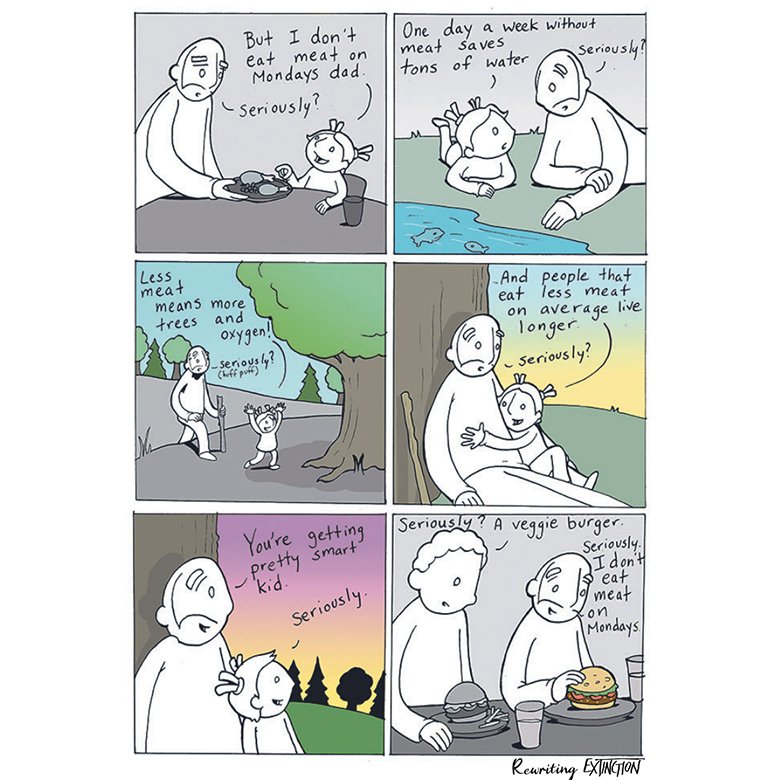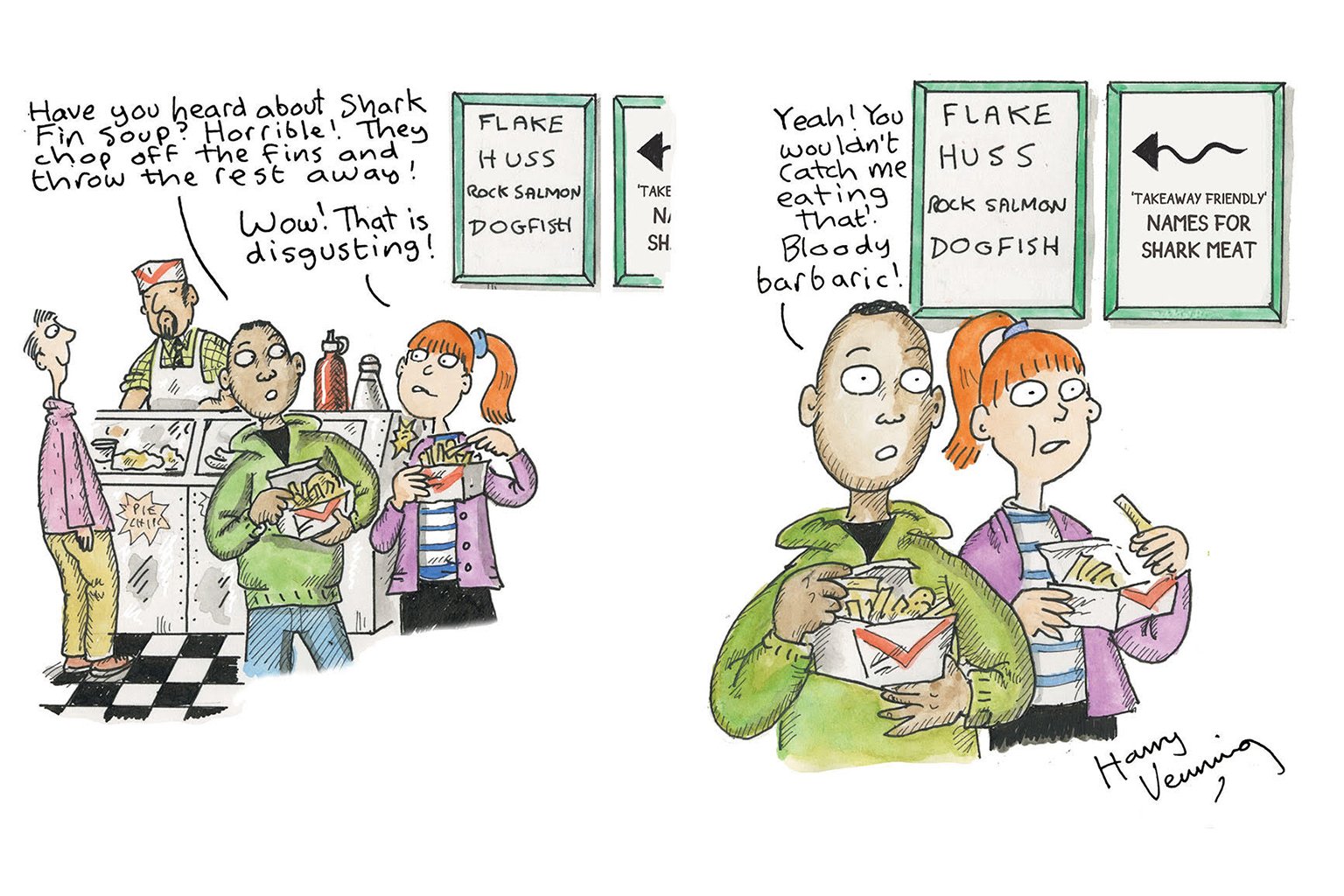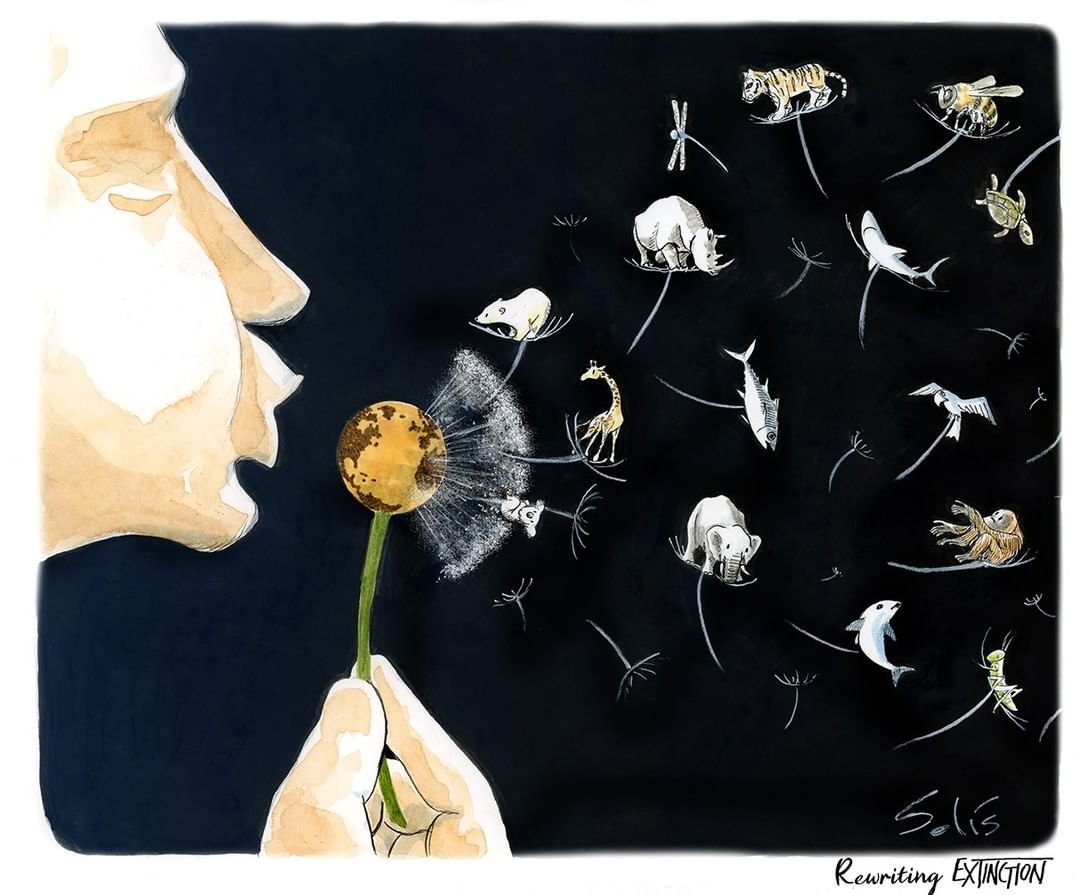- A new conservation fundraising group, Rewriting Extinction, aims to increase awareness about the biodiversity crisis by reaching out to new audiences.
- The group has raised about $180,000 for a range of different schemes in South and Central America, Europe and Asia.
- Critics accuse it of misleading supporters as to how conservation really works and making exaggerated claims on what its fundraising can achieve.
- The real cost of tackling wildlife declines runs into the tens of billions of dollars, and some experts say Rewriting Extinction is selling a false narrative, while others support Rewriting Extinction’s efforts to raise awareness among people who would otherwise be indifferent to the issue.
On Feb. 3, a new conservation fundraising group called Rewriting Extinction put out a tweet with a video featuring environmental campaigners as well as celebrities not known for their expertise in wildlife conservation.
The short promo featured the renowned primatologist Jane Goodall, the British natural history presenter Chris Packham, and the Kenyan climate activist Elizabeth Wathuti, along with the model Cara Delevingne and actor and comedian David Schneider, among others.
The tweet accompanying the video claimed that “300 people and 7 charities have come together and saved 625 species since June 2021” thanks to the sale of a comic book titled The Most Important Comic Book on Earth: Stories to Save the World, written by celebrity supporters with artwork provided by experienced illustrators.
The reaction on social media was instant — and dismissive. “Can you please post the list of 625 species?” asked Jonathan Kolby, a former law enforcement officer with the U.S. Fish and Wildlife Service and an expert in the international wildlife trade. “From my experience, simply buying land is not enough to truly protect wildlife & people ‘forever’ & I’d like to learn more about how you’ve accomplished this in less than 1 year.”
Others responded with greater sarcasm or simple disbelief. “Soon the biodiversity crisis will be over. Because of you,” said one. “Bullshit!!! Name them?” said another.
Started by website designer and businessman Paul Goodenough in 2021, Rewriting Extinction’s aim has been to raise awareness about the biodiversity crisis among people to whom traditional conservation groups don’t appeal. One crucial aspect of this was to gain the backing of celebrities, such as Brooklyn Beckham, Ricky Gervais and Yoko Ono, who would use social media to promote the campaign to their followers.
“Our strategy was to talk to people like my dad,” Goodenough said. “People who, if you said to them give us £5 [$6.30] and we’ll fund some scientific research, that’s not tangible enough for them. They won’t give that money.”
Instead, Goodenough wanted to be able to tell anyone who donated or purchased the book exactly what their funds would buy.
“We picked projects who can say we’ve got these species on this land, and this land is at immediate risk of mining, or logging or being purchased by a company, and if that land goes, that’s the last refuge for those species,” he said.
An estimated $180,000 has been raised for projects in Guatemala, Ecuador, Vietnam and the U.K., with an additional $50,000 so far going to Greenpeace’s campaign to achieve proper protection for 30% of international waters by 2030.

Oversimplified?
Criticism of the group’s claims, however, has not only come from Twitter. Some experts point out that Rewriting Extinction can’t actually prove that it has saved species from extinction and that celebrity supporters are confusing the message by talking about issues such as animal welfare, not wildlife conservation.
Amy Dickman, professor of wildlife conservation at the University of Oxford and joint CEO of Lion Landscapes, said she had “raised concerns about the messaging many months ago” but there was “no hint that anyone from the campaign is listening.” The campaign, she said, could “ultimately do more harm than good”.
In an interview with Mongabay, Dickman said the problem was that Rewriting Extinction had both oversimplified the challenges of wildlife conservation and overclaimed what it had achieved. She said this misled the wider public into what was needed to be done to save species and ecosystems.
“I think we should be realistic about the real costs of conservation, and if people are surprised by that, then we need to change our thinking around biodiversity loss,” she said. “I know that groups such as Rewriting Extinction want to engage everyone and make them feel their $5 makes a difference — and it will be if enough people are doing it — but ultimately the idea that you can raise $10,000 and say this target has been delivered forever is so frustrating.”
Dickman pointed out that, earlier this year, conservation groups launched a campaign highlighting the need for the world’s wealthy countries to provide at least $60 billion every year to the poorest to combat biodiversity loss. Lion Landscapes alone, she said, had an annual budget of $1 million.
But Chris Packham, best known as the main presenter of the British natural history program Springwatch and as a high-profile campaigner on issues such as raptor persecution, said in an interview that although Rewriting Extinction had gotten things wrong in the tweet, calling it out about them so publicly was also a mistake.
“The knee-jerk, ‘this-is-all-rubbish,’ ‘what a bunch of prats’ doesn’t help,” he said. “It’s counterproductive and takes people’s eyes off the mission, which is sincere. They’re trying to draw attention to the climate and biodiversity crisis, and they’re trying to do it in a way that other NGOs can’t and don’t, and therefore it’s worthy of support.”
Critics of Rewriting Extinction should have shown more tolerance and seen the bigger picture, he added. “If I were them, and I had all these people piling in on me, I’d have just thought, ‘Oh god, why have we bothered to do this? We’re trying to help, why are all these people shouting at us?’”


Rewriting the model?
Money raised from the sale of the comic book has been passed to long-established organizations such as the World Land Trust (WLT), a conservation group that has been using the “buy an acre of rainforest” model since 1989. In this case, WLT then sent the funds to FUNDAECO, its local partner in Guatemala, to help management of Laguna Grande, a 2,000-hectare (5,000-acre) reserve on the country’s Caribbean coast that’s home to a wide range of tropical species, including West Indian manatees (Trichechus manatus), Yucatán black howler monkeys (Alouatta pigra) and red-eyed tree frogs (Agalychnis callidryas).
Dan Bradbury, WLT’s director of brand and communication, said Rewriting Extinction had donated $131,000 out of the $1.84 million raised for Laguna Grande, or about 7%.
“We could really tangibly tell [Rewriting Extinction], your funds could do this,” Bradbury said. “We were really clear with them: this could benefit this species and this area. But we also said, ‘If you’ve raised £1,000 [$1,260], you can’t say you’ve saved a jaguar, because you haven’t.’”
Bradbury added that, even more important than the fundraising was that Rewriting Extinction had put the name of the World Land Trust in front of new people due to the different audiences its celebrity backers can reach.
Dickman agreed that conservationists must appeal to a “broader church” and said it was “wonderful” that Rewriting Extinction was trying to do that, but she pointed out that with “a bigger platform comes bigger responsibility.”
One of the issues that can arise when involving celebrities is that they have their own agendas, which may be different to those of the campaigns they front. For example, one high-profile supporter of Rewriting Extinction is the British comedian and actor Ricky Gervais, who largely campaigns on the issue of animal rights rather than wildlife conservation. For the comic book, Gervais chose to highlight bullfighting.
But, as Dickman points out, animal welfare is distinct from wildlife conservation. “It’s like saying any doctor does the same job,” she said. “It’s like going to an ophthalmologist and asking them for help to reconstruct your fractured femur.”
Conflation of these two issues is a broader problem beyond the Rewriting Extinction campaign, she said, and something that the media frequently gets wrong. “They take an animal welfare organization and write, ‘Conservationists say …’ They’re not conservationists, though, they’re an animal rights group.”

Dave Goulson, a professor of ecology at the University of Sussex who has written a number of popular science books about insects and wildlife gardening, said Rewriting Extinction’s novel approach was to be welcomed, despite the mistakes it made.
“There are those of us who really care about the environment and biodiversity collapse, and yet it seems that most people really don’t give a stuff,” Goulson said. “Any effort to make a dent in that indifference seems worthwhile to me. It would be nice if they tried to be more careful in what they say, but I suppose they are trying to keep the positivity going and get more people to buy into it.”
Dickman said you don’t have to simplify or sugarcoat stories to raise money or gain support. She pointed to groups like Save the Rhino International, which isn’t afraid of tackling thorny issues in public, such as the debate over trophy hunting.
For his part, Paul Goodenough said he hopes to carry on raising awareness and cash for conservation through Rewriting Extinction and to engage those people who don’t know what wildlife trafficking or bycatch are. He said he doesn’t know exactly what he’ll do next, but that it’s likely to be something online rather than another book.
“I think of it like exercise,” he said. “Imagine you’ve got different people coming into the gym, those who understand how things work and your complete newbies. They’re looking around at everything and they’re terrified because everyone else knows more than them, and so they walk out again. My role is to get those people to stay.”
Banner image: A Geoffroy’s spider monkey. An estimated $180,000 has been raised by Rewriting Extinction for projects in Guatemala, Ecuador, Vietnam and the U.K. Image via PxHere.











